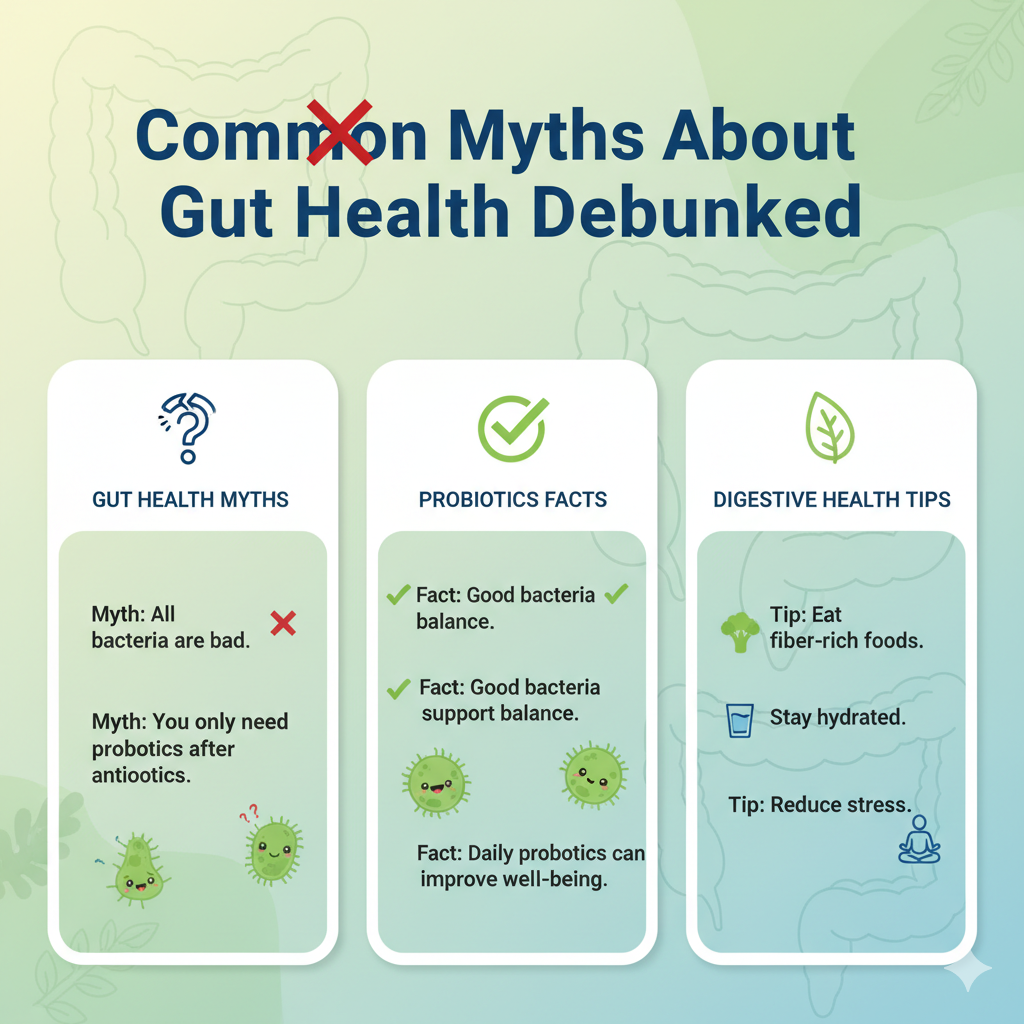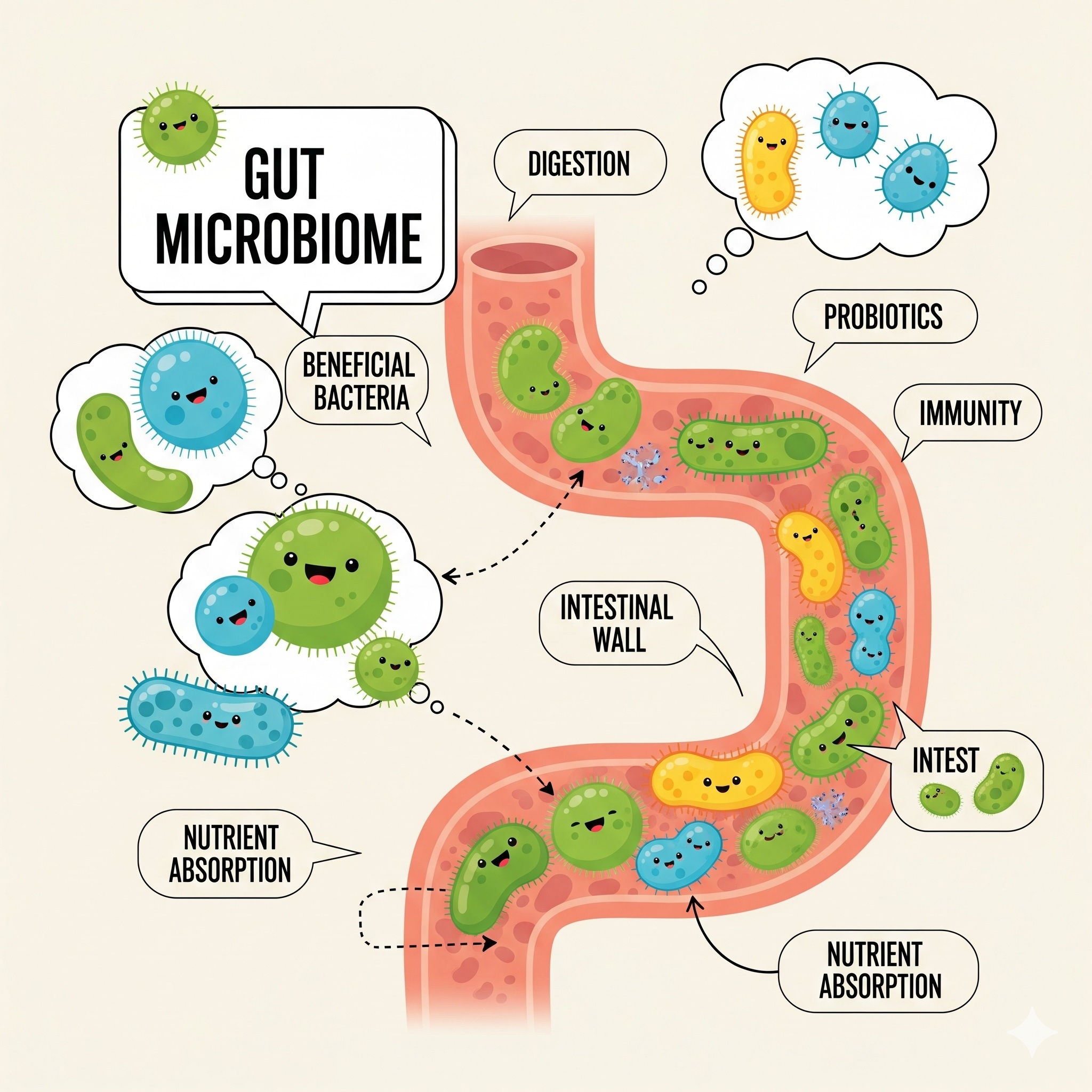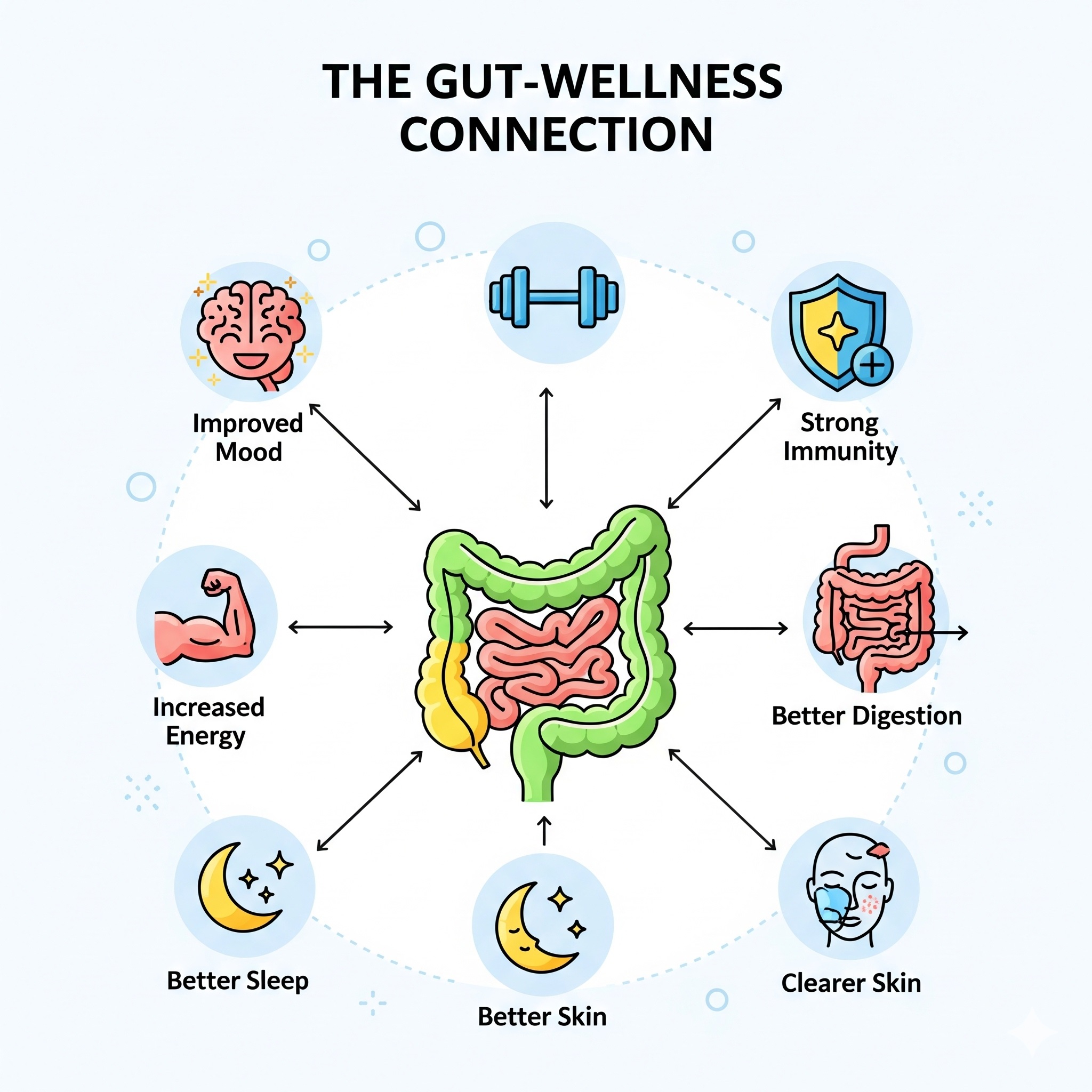In recent years, gut health has become one of the most popular topics in wellness circles. From probiotic supplements to gut-friendly diets, people are eager to improve their digestion and overall health by taking care of their microbiome. However, with this rise in interest comes an explosion of misinformation. Social media influencers, blog posts, and even some health brands often oversimplify or exaggerate claims about gut health, leaving people confused about what is actually true.
In this article, we will explore some of the most common myths about gut health and set the record straight. By understanding the facts, you can make better decisions for your digestive health and avoid wasting time or money on ineffective strategies.
Myth #1: You Need Expensive Probiotic Supplements for a Healthy Gut
One of the most widespread beliefs is that probiotics are the “magic bullet” for digestive health and that you must take them every day to have a healthy gut. While probiotics can be helpful in certain situations, they are not necessary for everyone.
The Facts:
Probiotics are live bacteria that can provide health benefits when consumed in adequate amounts. They are found naturally in fermented foods like yogurt, kefir, kimchi, sauerkraut, miso, and kombucha. For most healthy people, simply including a variety of these foods in the diet can support a diverse gut microbiome.
Probiotic supplements can be useful for specific conditions, such as after a course of antibiotics, in some cases of irritable bowel syndrome (IBS), or to prevent antibiotic-associated diarrhea. However, not all probiotic strains work for all conditions, and not all supplements on the market contain effective amounts of the right bacteria.
Takeaway:
If you are generally healthy, focus on eating a balanced diet rich in fiber and naturally fermented foods. Probiotic supplements may help if recommended by a doctor, but they are not a must for everyone.
Myth #2: A “Cleanse” or Detox is the Best Way to Reset Your Gut
Detox teas, juice cleanses, and colon cleanses are marketed as quick ways to reset or “clean out” the gut. Many people believe that these regimens flush toxins from the digestive system and improve gut health.
The Facts:
Your gut and liver already have highly effective systems for removing waste and toxins from the body. Your intestines, liver, and kidneys work continuously to break down food, absorb nutrients, and excrete waste. There is no scientific evidence that commercial detox products provide additional health benefits for the gut.
In fact, some cleanses can be harmful. Colon cleanses and strong laxative teas can disturb the natural balance of gut bacteria, dehydrate you, and even cause electrolyte imbalances.
Takeaway:
Instead of doing harsh cleanses, focus on supporting your body’s natural detoxification process by drinking enough water, eating fiber-rich fruits and vegetables, exercising regularly, and getting adequate sleep.
Myth #3: You Should Avoid All Carbohydrates for Gut Health
Low-carb diets have become popular, and many people believe that cutting out carbs is good for gut health. Some think that sugar and carbohydrates “feed bad bacteria,” leading to an unhealthy gut.
The Facts:
Not all carbs are created equal. Refined carbs like white bread, candy, and sugary drinks can negatively affect the gut microbiome if consumed in excess. However, complex carbohydrates found in whole grains, legumes, fruits, and vegetables provide prebiotics—types of dietary fiber that feed beneficial bacteria.
Research shows that a diverse microbiome thrives on a wide range of plant-based foods. Eliminating all carbs may actually reduce microbial diversity and harm your gut health in the long term.
Takeaway:
Instead of cutting carbs completely, focus on eating high-quality complex carbohydrates that nourish your gut bacteria. Include foods like oats, beans, quinoa, bananas, and leafy greens to promote a healthy gut ecosystem.
Myth #4: Gut Health is Only About Digestion
When most people think about gut health, they only think about bloating, constipation, or diarrhea. However, gut health is linked to much more than digestion.
The Facts:
Your gut microbiome influences many systems in the body, including your immune system, metabolism, brain function, and even mood. Around 70% of your immune system is located in the gut, and gut bacteria produce neurotransmitters like serotonin that affect mental health.
Poor gut health has been associated with conditions such as autoimmune diseases, obesity, anxiety, and depression. This is why experts emphasize a holistic approach to gut health that goes beyond digestion.
Takeaway:
Support your gut health not just for better digestion, but also for improved immunity, mental well-being, and overall wellness.
Myth #5: If You Have Digestive Symptoms, You Must Have “Leaky Gut”
The term “leaky gut” has become very popular online. Many wellness influencers blame it for everything from fatigue to skin problems, suggesting that intestinal permeability is the root of most chronic diseases.
The Facts:
Increased intestinal permeability does exist, and it can play a role in certain conditions like celiac disease and inflammatory bowel disease (IBD). However, the idea that “leaky gut” is the cause of most health problems in otherwise healthy individuals is not supported by strong scientific evidence.
Digestive symptoms like gas, bloating, or diarrhea can have many causes—including food intolerances, infections, stress, or functional gut disorders. Jumping to the conclusion that you have “leaky gut” without proper medical testing can lead to unnecessary worry and ineffective treatments.
Takeaway:
If you have persistent digestive issues, consult a healthcare professional for proper diagnosis rather than self-diagnosing “leaky gut.”
Myth #6: Everyone Should Follow the Same “Gut-Healing” Diet
Another common misconception is that there is a single perfect diet for gut health that everyone should follow. Popular “gut-healing” diets often eliminate entire food groups, claiming that this will reset the microbiome.
The Facts:
Each person’s microbiome is unique—like a fingerprint—shaped by genetics, environment, and diet. What works for one person may not work for another. Some people may thrive on a high-fiber, plant-based diet, while others may need to limit certain fibers if they have IBS or other sensitivities.
Diets that are too restrictive can backfire by reducing microbial diversity and leading to nutrient deficiencies.
Takeaway:
The best gut health diet is personalized. Focus on eating a variety of whole foods, experiment with what works for your body, and work with a nutritionist or doctor if you have ongoing issues.
Myth #7: More Fiber is Always Better
Fiber is essential for gut health, but many people think they should eat as much fiber as possible to “feed” their microbiome.
The Facts:
While fiber is important, suddenly increasing fiber intake too quickly can cause bloating, gas, and discomfort—especially for people with sensitive digestion. The type of fiber also matters. Soluble fibers (found in oats, beans, apples) are more gentle, while insoluble fibers (found in wheat bran, raw veggies) can be irritating if eaten in excess.
Takeaway:
Increase fiber gradually and drink enough water to avoid discomfort. Aim for a balanced intake of soluble and insoluble fibers from a variety of foods.
Practical Tips for Supporting Gut Health
Now that we’ve busted some of the biggest myths, here are evidence-based tips to keep your gut healthy:
- Eat a diverse diet: Include many different plant-based foods each week to encourage microbial diversity.
- Incorporate fermented foods: Yogurt, kefir, kimchi, and sauerkraut can provide natural probiotics.
- Stay hydrated: Water helps move food through the digestive tract smoothly.
- Manage stress: Chronic stress can negatively affect the gut-brain axis.
- Get enough sleep: Poor sleep disrupts gut bacteria balance.
- Exercise regularly: Physical activity supports healthy digestion and microbiome diversity.
- Use antibiotics wisely: Take them only when prescribed, as they can disrupt gut bacteria.
Final Thoughts
Gut health is an exciting and growing area of research, but it’s important to separate fact from fiction. You don’t need expensive supplements, extreme detoxes, or restrictive diets to support a healthy microbiome. Instead, focus on a balanced lifestyle that includes a variety of whole foods, regular movement, and proper stress management.
By avoiding these common myths and following science-based strategies, you can take real steps toward better digestion and overall wellness.




